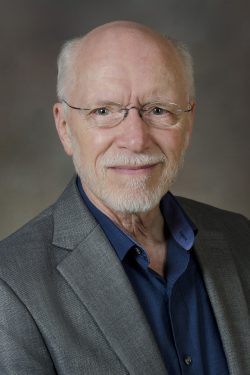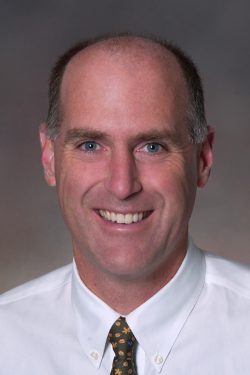This content was published: February 15, 2017. Phone numbers, email addresses, and other information may have changed.
Rock Creek event to help attendees better their odds for a healthy future
Photos and story by Celina Baguiao

Joel Nigg.
According to US government epidemiologists, children born today will have a shorter life expectancy than their parents. Equally alarming, poor growth in the womb puts children at risk for high blood pressure, type 2 diabetes, osteoporosis and asthma. How can these trends be stopped?
PCC’s Foods and Nutrition Department will welcome the OHSU Bob and Charlee Moore Institute for Nutrition and Wellness for a seminar to present recent findings about how to answer that question and more. “The Health of Gen Z: Do We Have the Will to Nurture Healthier Futures for Our Kids?” will take place from 8:30 a.m.-12:30 p.m. on Friday, Feb. 24 at Portland Community College’s Rock Creek Campus Event Center.
The OHSU Bob and Charlee Moore Institute for Nutrition & Wellness believes that reducing the prevalence of chronic diseases throughout life starts by promoting healthy, nutrient-rich diets based on wholesome foods – before conception, during pregnancy and lactation, and in infancy and early childhood. The Institute has teamed up with PCC to help spread the word about its mission.

Kent Thornburg.
“The health of the next generation is in our hands,” said Deb Lippoldt, faculty department chair and instructor in Foods and Nutrition. “We can leave it to chance, or we can make a choice. The choices aren’t easy, but we can really make a big difference.”
The morning will commence with a discussion led by Dr. Kent Thornburg, who will give a lecture titled “Developmental Programming is the Real Reason Adults Acquire Chronic Disease.” Following Dr. Thornburg, Dr. Joel Nigg will discuss “Diet and Neurodevelopmental Disorders in Children: The Latest on ADHD and Food.” Dr. Jon Purnell will close out the seminar with “Developmental Programming: Implications for the Worldwide Rise in Obesity and Diabetes,” which will cover the impacts of early life environments and multigenerational impacts on metabolism.

John Purnell.
“Those who join us for the seminar are going to get a good sense of how supporting the health of childbearing adults will impact generations down the road and in particular, physical and mental and emotional health,” Lippoldt noted.
Registration for the event is free, but organizers are asking attendees to register online. Light refreshments will be provided.
If interested parties cannot make it to the Rock Creek Campus, it will also be simulcast at the Cascade, Southeast and Sylvania Campuses. Registered participants also can stream the seminar live online via their personal computers, which will be emailed to registrants before the event.
